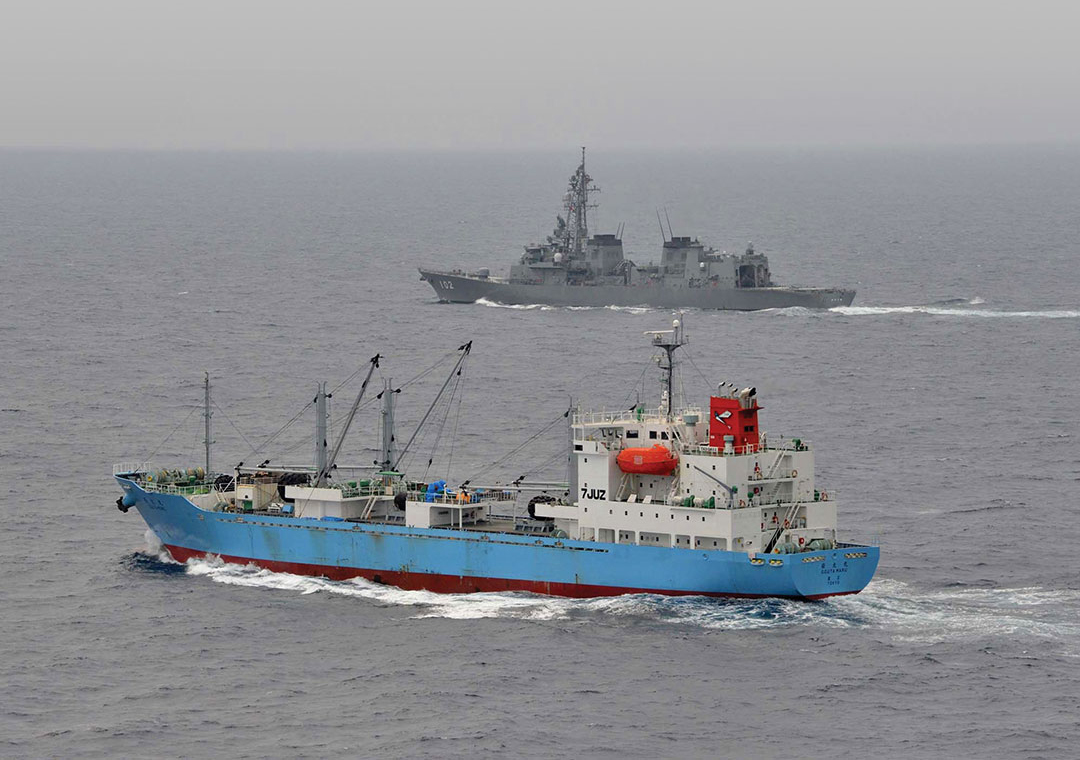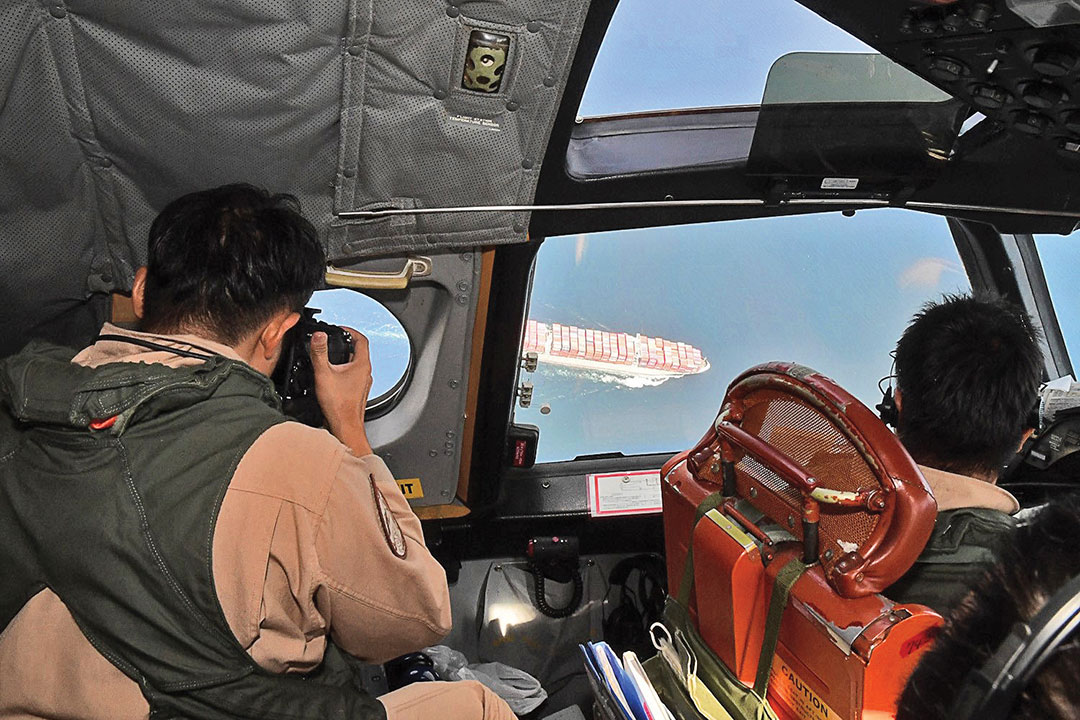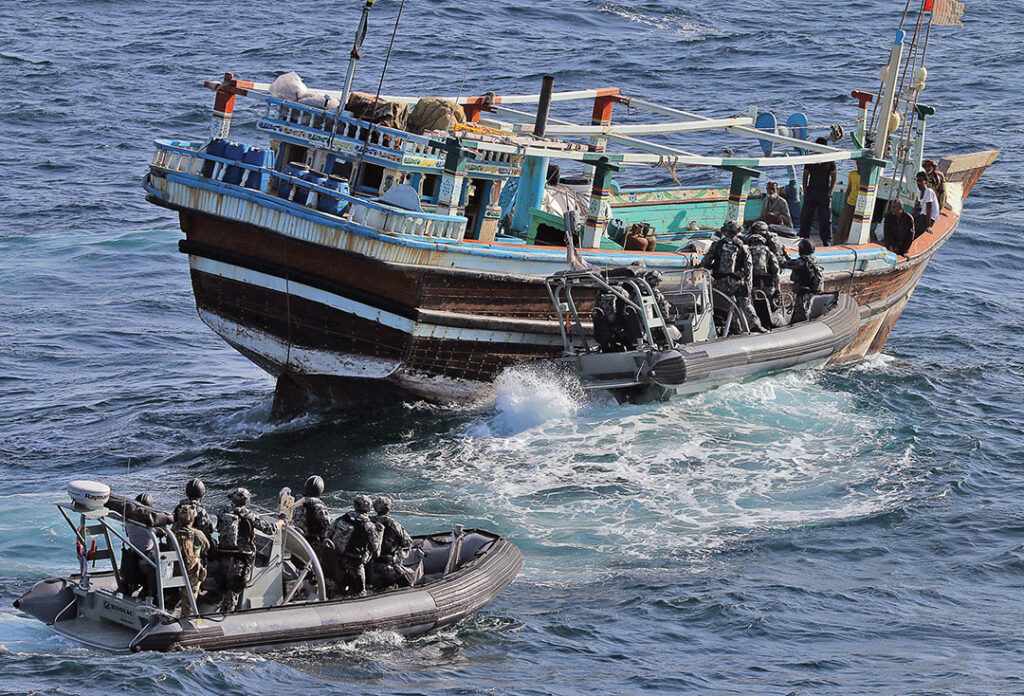Naval task forces would benefit from deeper participation by Middle Eastern partners
LT. MITCHELL VINES, ROYAL AUSTRALIAN NAVY | Photos by Combined Maritime forces
A combined task force involving multiple nationalities provides value to operating successfully in a large maritime area. Each participating nation contributes an array of skills, experience and knowledge, and each rotation assists in moving closer to the desired end state.
Combined Maritime Forces (CMF) operates using Combined Task Forces (CTF) 150, 151 and 152. CTF 150’s focus is counterterrorism largely through counternarcotics operations in a maritime area of operation totaling 3.2 million square kilometers. CTF 150 relies on the cooperation of member states to contribute to an intelligence-led operation, and the outcomes have been successful. For example, the task force seized narcotics worth $23 million in 2017, $74 million in 2018 and more than $48 million in 2019.
CTF 150 contributes to the larger CMF, operating out of the Naval Support Activity facility in Bahrain. Over the past 18 years, the professionalism and dedication of CMF have continued to attract a growing number of members, with 33 nations from around the world now contributing to the mission. The CTF 150 format is well established, with a history stretching back to the September 11 terrorist attacks in 2001. In 2002 CTF 150 converted to a multinational force, including a variety of global partners who strive to maintain the rules-based global order.

CTF 150 conducts maritime security operations (MSO), capacity building and regional engagement. All three are critical to building support required to accomplish the mission. Successful MSO often involve fostering relationships with regional mariners, providing reassurance to the regional maritime community and disrupting illicit activity that may support terrorist activity. Capacity building and regional engagement assist in building the understanding and support necessary to continue to operate.
CTF 151 is focused on counterpiracy in conjunction with the European Union Naval Force and other nations acting independently in the area. CTF 151 contributes to a comprehensive effort to curb piracy and armed robbery in the Gulf of Aden and has been doing so since its establishment in 2009. Its presence has contributed to a significant reduction in piracy-related incidents. All nations that have participated in counterpiracy operations should be proud of their efforts to create safe passage for maritime trade in this part of the world.
CTF 152 coordinates MSO inside the Arabian Gulf. The task force has thrived since its establishment in 2004 and is commanded by personnel from Gulf Cooperation Council nations and other regional partners, such as Jordan. MSO, interoperability and capacity building in the region continue to improve through the combined efforts of CTF 152.
CTF 150 accomplishments
CTF 150’s focus is to deprive terrorists of money through the interdiction of narcotics, weapons and charcoal — items that are smuggled to finance terrorism in the area of operation. In the past five years the task force has conducted over 500 boardings and seized over 130,000 kilograms of narcotics, including hashish, heroin, methamphetamine and cocaine. These seizures contribute to a global effort to disrupt and reduce the impact and efficiency of terrorist-related funding and activities.
A secondary benefit to the seizures is reducing the flow of narcotics through potentially vulnerable communities en route to final destinations. Furthermore, the cooperation experienced within CTF 150 enhances the ability of the international community to develop skills that become valuable when working with countries that rarely work together or speak a common language.
Why participate in CTF 150?
The world relies on global trade to drive economic growth and maintain or improve standards of living. Stable maritime trade routes allow for the efficient flow of goods across the oceans.
Participation in CTF 150 offers more than an opportunity to make an impact on narcotics, weapons, and charcoal smuggling or other terrorist-related activity. The opportunity to maintain, build, develop and enhance international relations is another reward for those who contribute to CTF150, be it at sea, on land or in the air.
Lead nations are integral to the success of CTF 150, and it is through their contributions that the CMF achieves its missions. Gulf states possess the local knowledge and capabilities to sustain operations in the region. Additionally, they possess a comprehensive understanding of the political, military, economic and human geography of the region.

That knowledge cannot be underestimated. Commanders and staff who have roots in the region, speak the regional languages, and possess cultural insight are force multipliers for CMF. For these reasons, Gulf states and other regional partners are in a better position to define the needs of the mission than others.
Another benefit of participating in a CTF is the opportunity to work with different nations. The CTF 150 rotation in the beginning of 2020 includes staff from Australia, Canada and New Zealand, each nation offering a different perspective on problems and solutions. Combined staffing enables personnel to develop an appreciation for working together, a skill that continues to pay dividends when staffers return home after deployment.
A larger regional role
Rotating CTF commands several times per year injects fresh viewpoints and builds esprit de corps. Extending the duration of a rotation would allow CMF to realize longer-term planning and strategic goals.
CMF also responds to the needs of regional partners. That is to say, regional partners are expected to determine what they require from CMF. The expectation is that regional states will eventually take the helm of the task forces permanently. It would be advantageous to include a regional state in each CTF 150 rotation to enable and empower the already capable and professional region to own and shape the future of CTF 150 and CMF more generally.
CTF 150 may benefit from focusing on a perpetual Gulf state command. This moves toward the goal of regional ownership and assumption of a more prominent leadership role in the CMF mission. CTF 152 already executes that well. Increasing the role of Arabic in communications within CTF 150 could help in the shift toward regional leadership.
Another way to improve the CTF 150 mission is to allow national courts to prosecute smugglers who traffic illegal goods on the high seas. This has been described as “legal finish” for counternarcotics. The development of a mechanism to prosecute acts of piracy committed in international waters within national courts has already demonstrated the deterrent effect “legal finish” can deliver.
Implementing a similar approach for counternarcotics is challenging, however, because unlike piracy, narcotics offenses are not crimes of universal jurisdiction. Therefore, participating nations need to ensure they either have domestic legislation in place to prosecute narcotics smugglers or have bilateral agreements with nations that do.
CTF 150, 151 and 152 continue to build on a fine tradition of partnership-based success in the Middle East. The success is heavily attributed to the willingness of states from all corners of the globe to work toward a safe maritime environment and a secure rules-based order. This remains a complex task.
Gulf states and regional partners have been — and continue to be — the linchpin to the success of the effort. It is through their ongoing commitment that CMF will achieve its missions.

